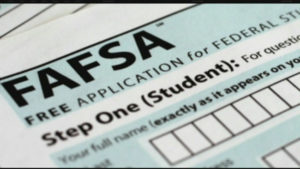 Today’s top story: 8 ways to keep your travel credit cards working for you. Also in the news: Baby steps can get your credit life rolling, how one-way flights could be just the ticket when booking with miles, and 6 things to know about student loans before you start school.
Today’s top story: 8 ways to keep your travel credit cards working for you. Also in the news: Baby steps can get your credit life rolling, how one-way flights could be just the ticket when booking with miles, and 6 things to know about student loans before you start school.
8 Ways to Keep Your Travel Credit Card Working for You
Baby Steps Can Get Your Credit Life Rolling
Booking With Miles? One-Way Flights Could Be Just the Ticket
6 Things to Know About Student Loans Before You Start School
 Today’s top story: When can I retire? Also in the news: How to get your own royal family photos at commoner prices, how to make the most of your HSA, and how living in one of these cities means you could pay your student debt off sooner.
Today’s top story: When can I retire? Also in the news: How to get your own royal family photos at commoner prices, how to make the most of your HSA, and how living in one of these cities means you could pay your student debt off sooner.  Today’s top story: Planning to work into your 70s? Why you need a Plan B, too. Also in the news: How your income can peak before you’re ready, college-bound students could face $37,400 in loans, and how to sell or recycle your old electronics.
Today’s top story: Planning to work into your 70s? Why you need a Plan B, too. Also in the news: How your income can peak before you’re ready, college-bound students could face $37,400 in loans, and how to sell or recycle your old electronics.  Today’s top story: What to buy (and skip) in May. Also in the news: Early retirees share hard lessons learned, a student loan partial financial hardship calculator, and why you should research mortgage lenders the way you research restaurants.
Today’s top story: What to buy (and skip) in May. Also in the news: Early retirees share hard lessons learned, a student loan partial financial hardship calculator, and why you should research mortgage lenders the way you research restaurants.